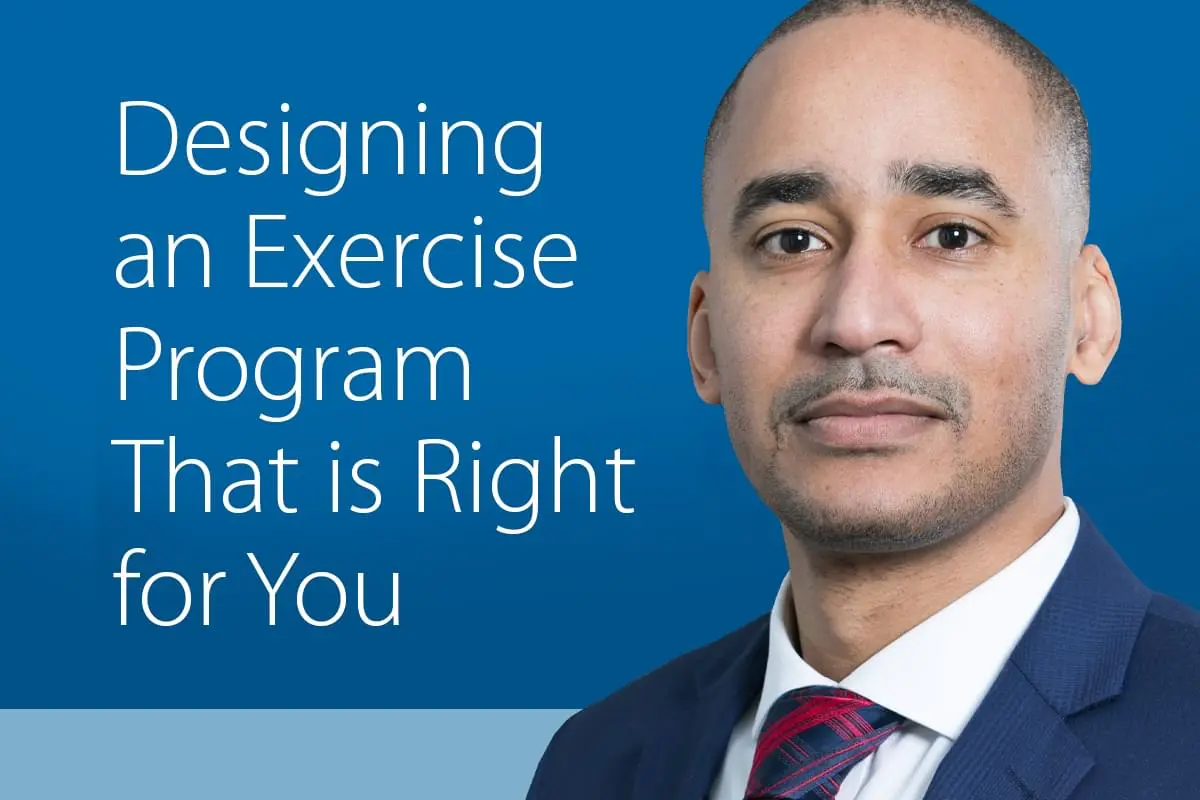Designing an Exercise Program That is Right for You

Starting a fitness program can be one of the best things you can do for your health.
Exercising daily can provide a way for you to share an activity with your family and friends. At the same time, it helps you establish healthy habits.
Daily exercise can help prevent conditions such as obesity, high blood pressure, high cholesterol, and poor lifestyle habits that lead to heart attack and stroke later in life. It can also can help delay or prevent chronic illnesses and diseases linked to aging.
However, the difficulty with any exercise program can be where to start. Adena Internal Medicine Specialist Dr. Juanito Savaille offers some tips to help get you active this spring.
Where to Start?
According Dr. Savaille, the first thing you should do before beginning any kind of exercise program is to consult with a doctor to help set up realistic goals and to prevent injury, especially those who have never exercised or engaged in much physical activity.
“Simply walking can increase your heart rate and breathing, which makes it easier for you to perform daily living activities,” he said. “For some patients, 20 minutes of low-moderate exercise is enough. Ideally, you should try to get a minimum of 30 minutes of low-moderate exercise, such as walking, three or more days per week. The exercise can be continuous for 30 minutes or broken into three 10-minute intervals throughout the day.”
Staying Fit the Old Fashioned Way
Certainly, modern devices can make life easier and more convenient, but they also can make you less active. There are a number of ways though to get active besides just walking or jogging.
Maybe it's time to dust off the old push lawnmower or try changing the channels by hand instead of using a remote. Try taking the stairs each day instead of the elevator or park at the farthest corner of the parking lot. Even bursts of activity like this can improve blood pressure and blood sugar control and also put off depression.
Dr. Savaille also recommends gardening, swimming, bicycling, yoga and dancing.
Am I Too Old to Exercise?
One myth is as we get older we should limit our physical activities because it can add wear and tear on the body and possibly cause injury. Not true. A reduction in physical activity can actually be more harmful than not getting any physical exercise. Lack of physical activity or decreased physical activity can lead to worsening of medical conditions. “For older individuals it’s recommended to start with low intensity and go slow,” said Dr. Savaille. “It is important to note that the body’s thirst response diminishes as you get older. Therefore, it is important to ensure you are drinking plenty of water before, during and after you exercise. Drinking four 16-ounce bottles of water per day is what I recommend my patients.”
Should Exercising Hurt?
Moderate-to-vigorous physical activity can cause muscle soreness and achy joints, especially for beginners. Dr. Savaille recommends always warming up before exercising. “Exercising should never cause severe pain,” he said. “If you do experience severe pain, stop exercising. If any injury does occur or you have any symptoms such as chest pain, feeling faint, dizziness, nausea or palpitations, stop exercising and call your health care provider immediately.”
You can also perform the R.I.C.E. Therapy (Rest, Ice, Compression and Elevation) to help, but if pain does not improve after two days notify your doctor.
What Should I Wear?
Wearing proper clothing and footwear is important when exercising to prevent injuries. Improper shoes can damage or injure your feet, ankles, knees and hips. Clothes should fit comfortably and let you move freely.
“Athletic shoes/sneakers are best for exercising,” Dr. Savaille recommends. “It is also important to have shoes that fit well and provide great support for your feet. Diabetic sneakers/shoes should be worn at all times for individuals with diabetes. Wear materials that allow air to circulate and dress appropriately based on the weather for outdoor activities.”
Remember, staying active has many health benefits and can even reduce stress and improve sleep, However, anyone with symptoms such as shortness of breath, pain, lightheadedness/dizziness or anyone who suffers from a medical condition such as diabetes, heart disease, kidney disease or lung disease should consult with a doctor before participating in a fitness plan.
Dr. Savaille is currently accepting new patients. To schedule an appointment, call Adena Internal Medicine at 740-779-4700. For more tips on how to start on your fitness journey, visit adena.org/staywell.